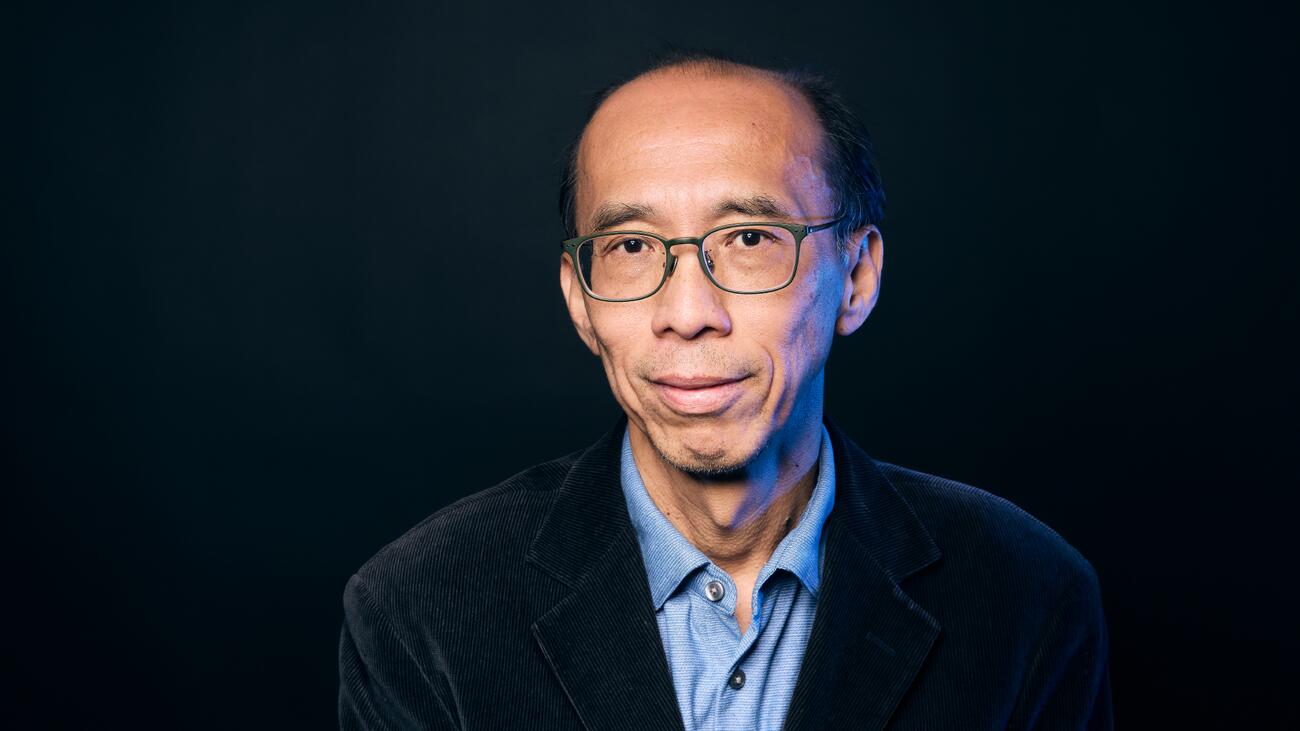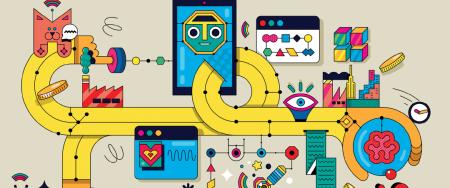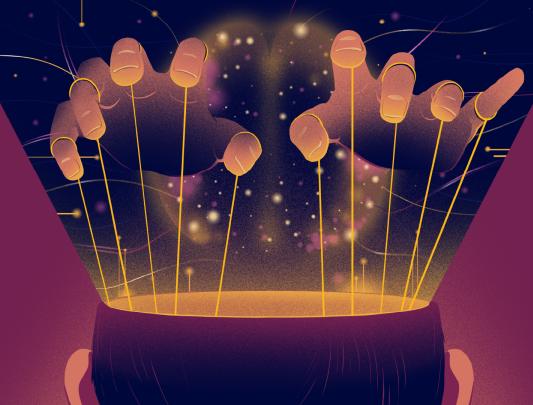
Photo by Kyrani Kanavaros
A hi-tech cure for our ailing healthcare system
Raymond Ng is using NLP to streamline complex processes and improve patient outcomes.
Dr. Raymond Ng is a data scientist with a passion for using AI to streamline complex challenges in the healthcare system and improve patient outcomes. As a Canada Research Chair in Data Science and Analytics and director of the Data Science Institute at UBC, his work focuses on harnessing the power of natural language processing, a form of AI that interprets human communication.
Even if you’ve never heard the term NLP, the technology may already be integrated into your life. Apple’s Siri, Amazon’s Alexa, and Google Home are all examples of NLP, as are chatbots and predictive texting. Ng is applying NLP in two main ways: to process clinical documents such as patient records and imaging reports, and to interpret user-generated content, such as text messages from patients or their caregivers.
Busting the Backlog
The healthcare system produces an enormous number of clinical documents at a rate that can be nearly impossible to keep up with. This was a challenge experienced by the BC Cancer Registry, which receives pathology reports for every clinical sample suspected to be cancerous. The existing AI program they were using to process these reports, which was designed to err on the side of caution, generated a 40 per cent false-positive rate – incorrectly flagging samples as cancerous and overloading an already backlogged system.
Ng and his team addressed these considerable flaws by replacing the system with a more nuanced form of NLP technology that has achieved a remarkable 98 per cent accuracy with only an eight per cent false-positive rate, and automating the process to clear the report backlog each hour.
“In our healthcare system there are so many reports, and they contain a lot of wonderful information but it is all buried,” says Ng. “When a pathology report needs to be read by a human expert, high caseloads mean that it usually takes a few weeks. If the report is read and triaged by AI, it takes less than a minute.” While some cancers may be benign or slow growing, more aggressive forms can wreak havoc if patients have to wait weeks or months to be diagnosed. Using NLP to speed up report processing means the patients who need the most urgent care will have their cases flagged earlier and receive appropriate care sooner. Ng is now developing a system to further streamline the process by differentiating between different types of cancers.
“The demand on healthcare is going to be even higher, and the supply of trained professionals will not be able to catch up as the population ages. But if we use AI effectively, we can meet this demand.”
~ Raymond Ng
Integral to his success is Ng’s collaborative approach. “I spend a lot of time co-designing the AI tools with the humans who will be using them,” he says. The payoff is clear, not only in terms of patient outcomes but also in terms of the international recognition BC now enjoys as a leader in NLP health applications. A new pilot program using Ng’s application of the technology is being developed in the Maritimes as well as Ontario, with the National Institutes of Health in the US strongly interested in adopting it as well.
Earlier detection and intervention
The second branch of Ng’s work involves applications of NLP based on user-generated content – information collected directly from patients. He sees tremendous potential in analyzing this data to provide early detection and intervention. “The idea is that we can remotely monitor how an individual is doing so that we might be able to flag certain situations and suggest the user should call their doctor,” he explains.
In collaboration with Dr. Daniel Vigo from UBC Psychiatry, Ng is exploring the use of an app to monitor student mental health on UBC campus. When students opt in to this project, the app monitors their text messages and uses NLP to pull out data on a student’s wellbeing, including their stressors and moods. When the system recognizes the wellbeing of the user is declining, it may suggest they see a healthcare provider.
Beyond supporting student mental health, Ng is excited about the potential for this technology to be used as an early alert system for seniors isolated at home or non-acute cancer patients who are not being monitored in a hospital. He can also see user-generated content being incorporated with other forms of NLP in the future, such as a chatbot, to draw out further information from users and provide more personalized recommendations and resources to help.
The priority with user-generated content is always patient consent and privacy. “The people working on these problems understand this,” says Ng. There is no direct reporting to healthcare providers; user-generated-content applications are more about personal assistance and monitoring. Dr. Ng’s hope is that as people opt in to these technologies, others will see how beneficial they are and choose to opt in themselves.
The power of AI
Ng sees AI as a win-win for both patient and practitioners. With AI doing the heavy lifting on the more time-consuming and repetitive tasks, such as triaging, healthcare providers can spend more quality time with patients.
Given the aging population and the rate of retirement and burn-out amongst healthcare professionals, the burden on the already overwhelmed healthcare system is only going to increase in the coming years. “The demand is going to be even higher, and the supply of trained professionals will not be able to catch up as the population ages,” says Ng. “But if we use AI effectively, we can meet this demand.”




































